Designed by Kelly Ross, the newest addition to Bisa Hospitality’s portfolio represents more than just another restaurant opening.
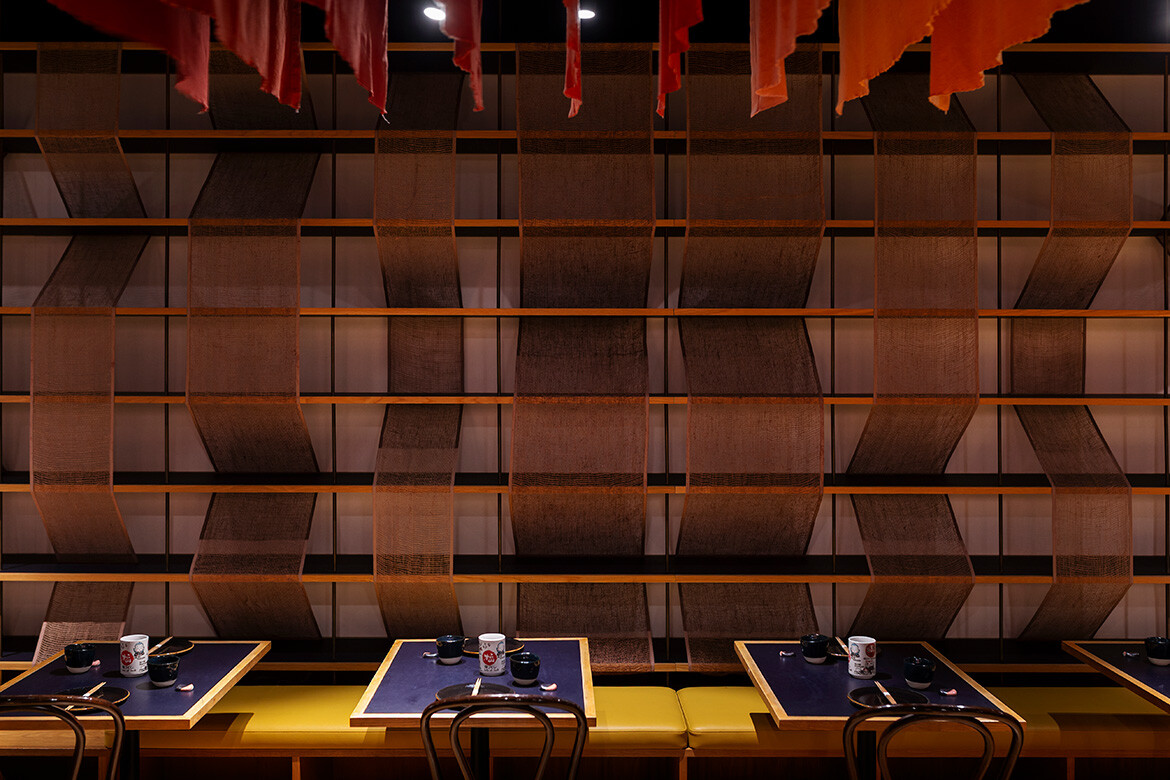
September 9th, 2025
When owners and siblings Dion and Dan Bisa envisioned Azuma Den – named after the Japanese word for ‘east’ – they sought to create something that would honour Japanese simplicity alongside Korean boldness while capitalising on their team’s existing culinary expertise. Working alongside culinary director and chef Francesco ‘Frankie’ Balestrieri, Executive Chef Junho Koh and Sous Chef Jun Kim have crafted a menu that bridges cultures, celebrates the fire infused flavours of Hibachi cooking methods. It brings both Japanese seasonal ingredients and Korean fermentation techniques to our nation’s capital. The result is refined and elegant, yet wholly unpretentious.
Ross’s design philosophy centres on creating an interior that is “layered and textural to reflect the culinary layering of East Asian cuisine – warm, delicate, inviting and vibrant.” This manifests through an interior scheme that celebrates the earth’s offerings, drawing from centuries-old dyeing traditions across China, Japan and Korea.
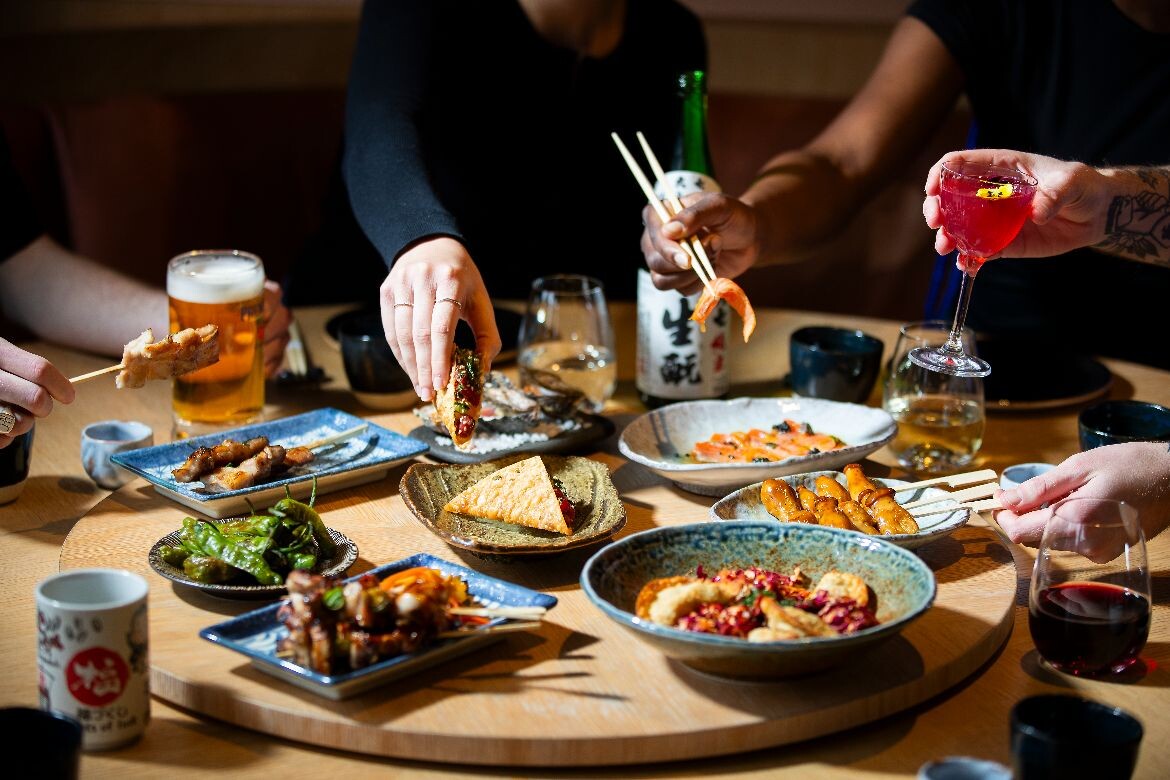
“The space honours the deep-rooted connection between the land and the ingredients it produces,” Ross states. “Each colour tells the story of the soil, the seasons and the hands that harvest.”
The six-month transformation of the former Muse bookshop café required a delicate balance between preservation and innovation. Ross chose to soften the existing austere, split-level space by adding warmth through craftsmanship. Upon entry from the East Hotel lobby, guests are greeted with Japanese noren curtains in neutral tones, handsewn and individually compiled from waste fabrics. To the left, running the length of the lower level interior wall, a striking installation celebrating the venue’s literary past is retained. Here, wooden timber bookshelves, accented with a black finish, are elegantly adorned with vertical sheaths of jute, hand-dyed with Mulberry bark and tea by KR, and sewn by A Stitch in Time. Flickering tealight candles placed on the shelves draw the eye and establish mood, while the fabric adds both a sculptural element and tactile warmth to the space.
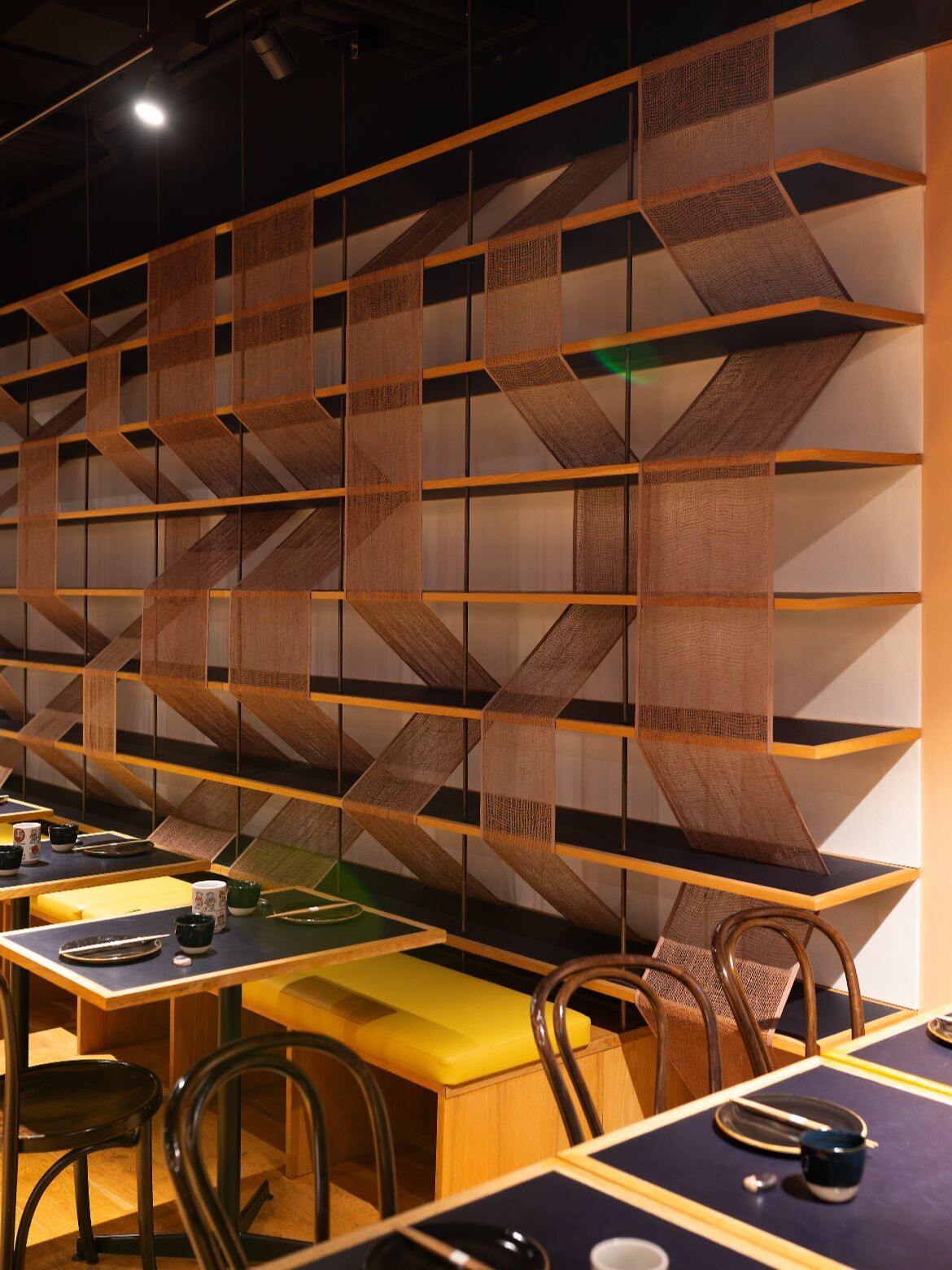
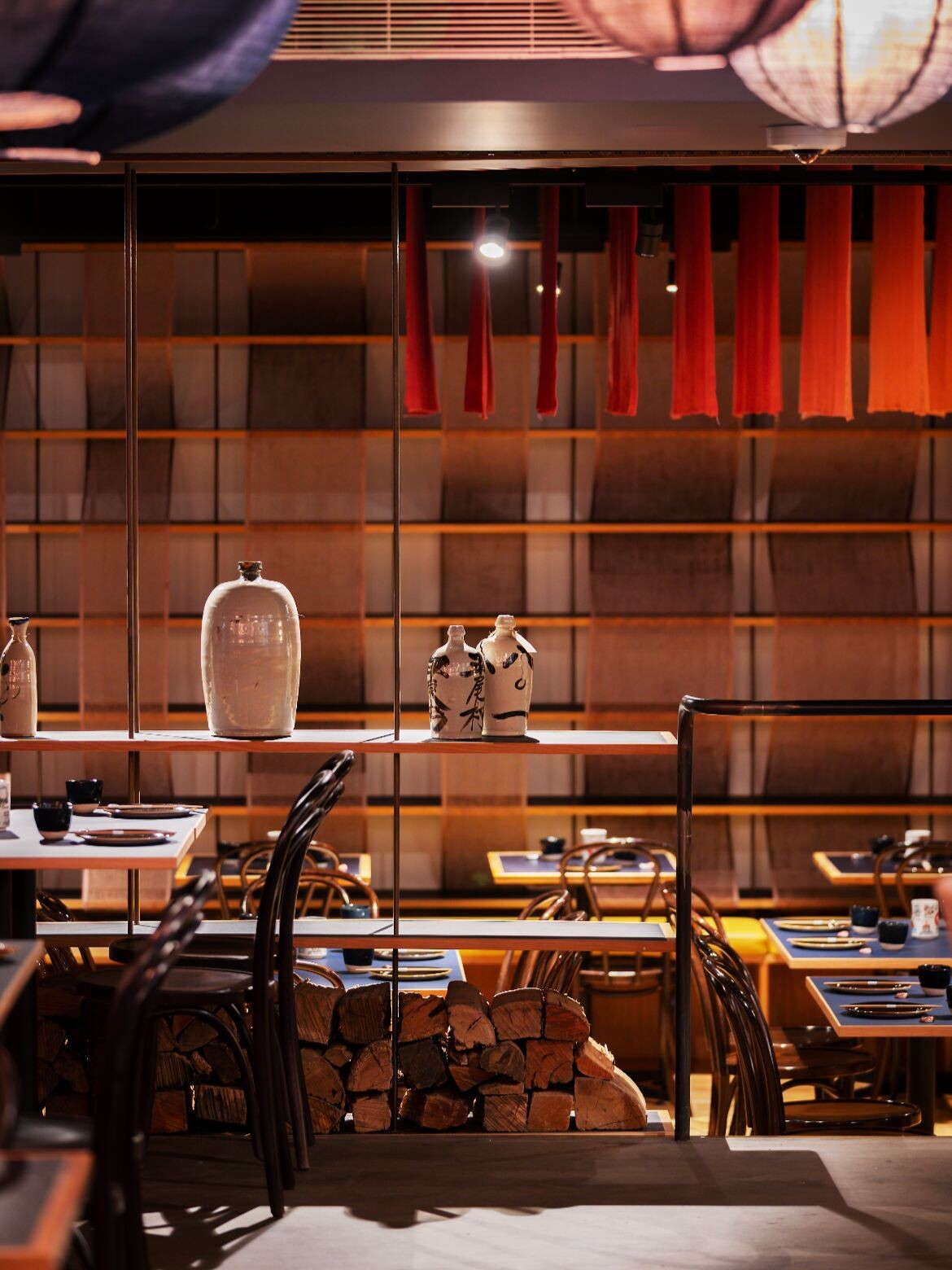
Above, the black ceiling acts as a dramatic backdrop for a visually arresting installation of seedy silk fabric, dyed with madder root by Sydney’s Day Keepers Cloth. This series of hanging banners in graduating tones from deep terracotta to ochre red and soft rose “evoke life force, spice and ancient medicinal traditions,” notes Ross.
Moreover, an enveloping canopy is created which not only adds intimacy to the dining experience, but cleverly absorbs sound. Complementing this, hand-dyed indigo lanterns by Shibori studio populate the ceiling in the upper level, adding volume and contrast, effectively creating a sense of drama.
Related: CLT cabins across the Japanese mountains
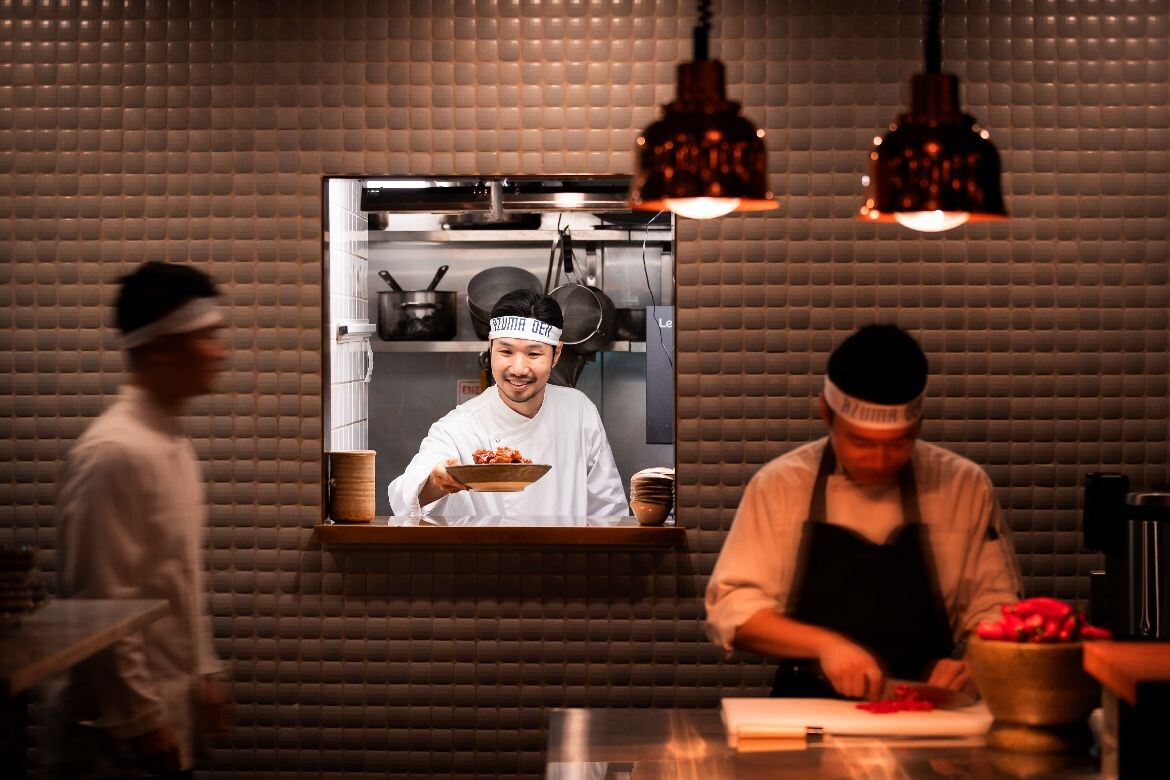
To immediately alter any preconceived ideas of layout from the previous establishment, Ross’s reconfiguration included closing off the original entryway to create a semi-private dining space called ‘the Den,’ which now accommodates eight guests. Additionally, by opening up the existing kitchen and bar area, diners can glimpse the bustling activity and experience the aromatic presence of fire and charcoal.
Moreover, booth seating throughout features deep leather tones inspired by the smoke of the hibachi grill, directly connecting the interior palette to the cooking traditions. The dining atmosphere is further enhanced by turmeric hued walls that create a cocooning effect, and groupings of vintage ceramic sake bottles on display add visual intrigue.
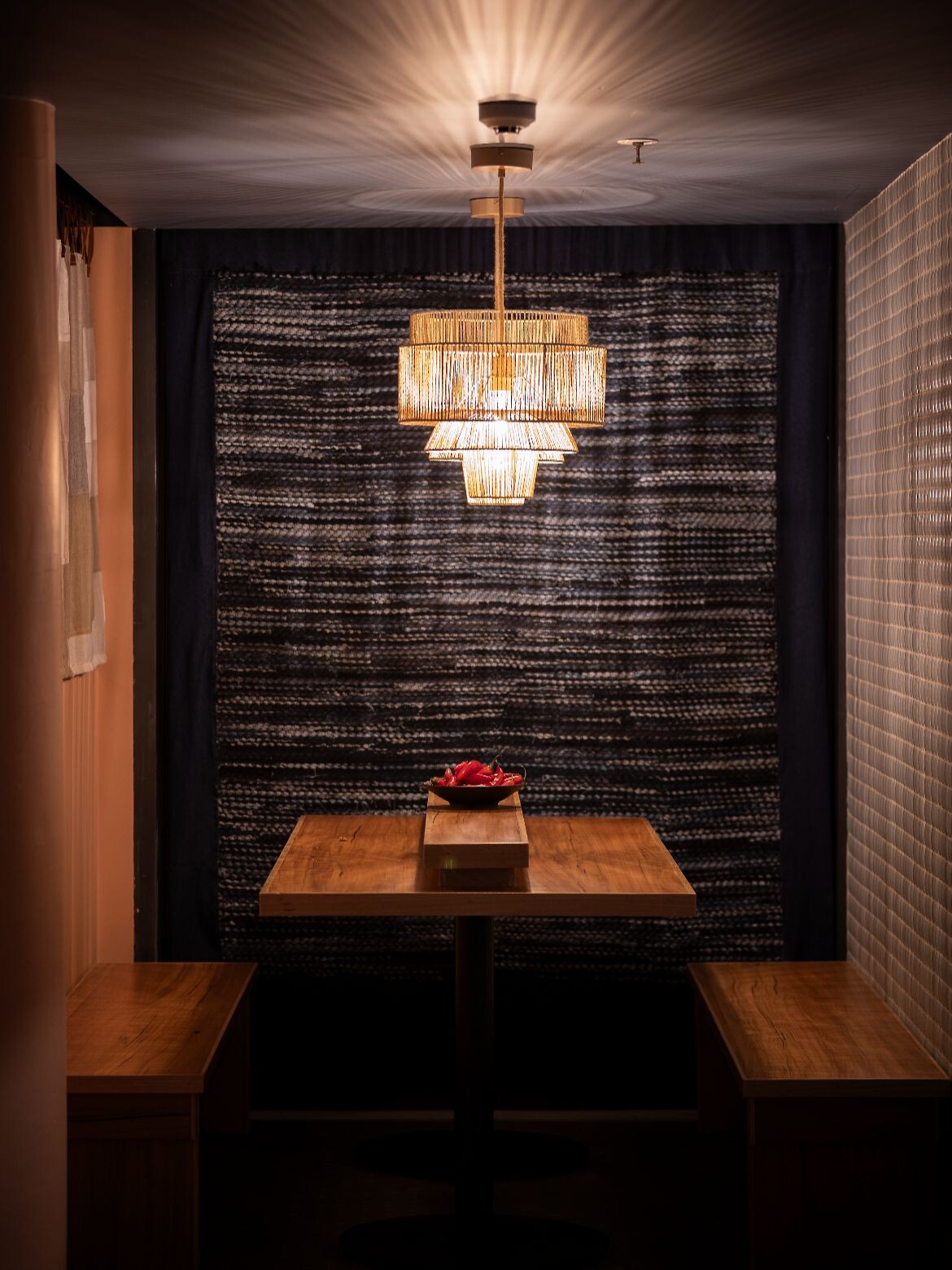
The commitment to sustainable practices, cultural authenticity, and embracing the Bisa Hospitality values of family and heritage extends throughout Ross’s design. Existing neutral-toned wall and floor tiles were retained to maintain material continuity. Simple black tables and bentwood chairs that allow for flexible seating configurations have been repurposed, demonstrating the project’s commitment to reducing waste.
Japanese indigo-dyed denim crafted from discarded Nudie Jeans has been tightly woven into a textured feature wall in the Den, while additional light blue denim has been used to upholster dining chairs that surround a circular oak table complete with Lazy Susan centrepiece sourced from the Italian-family matriarch Marissa Bisa.
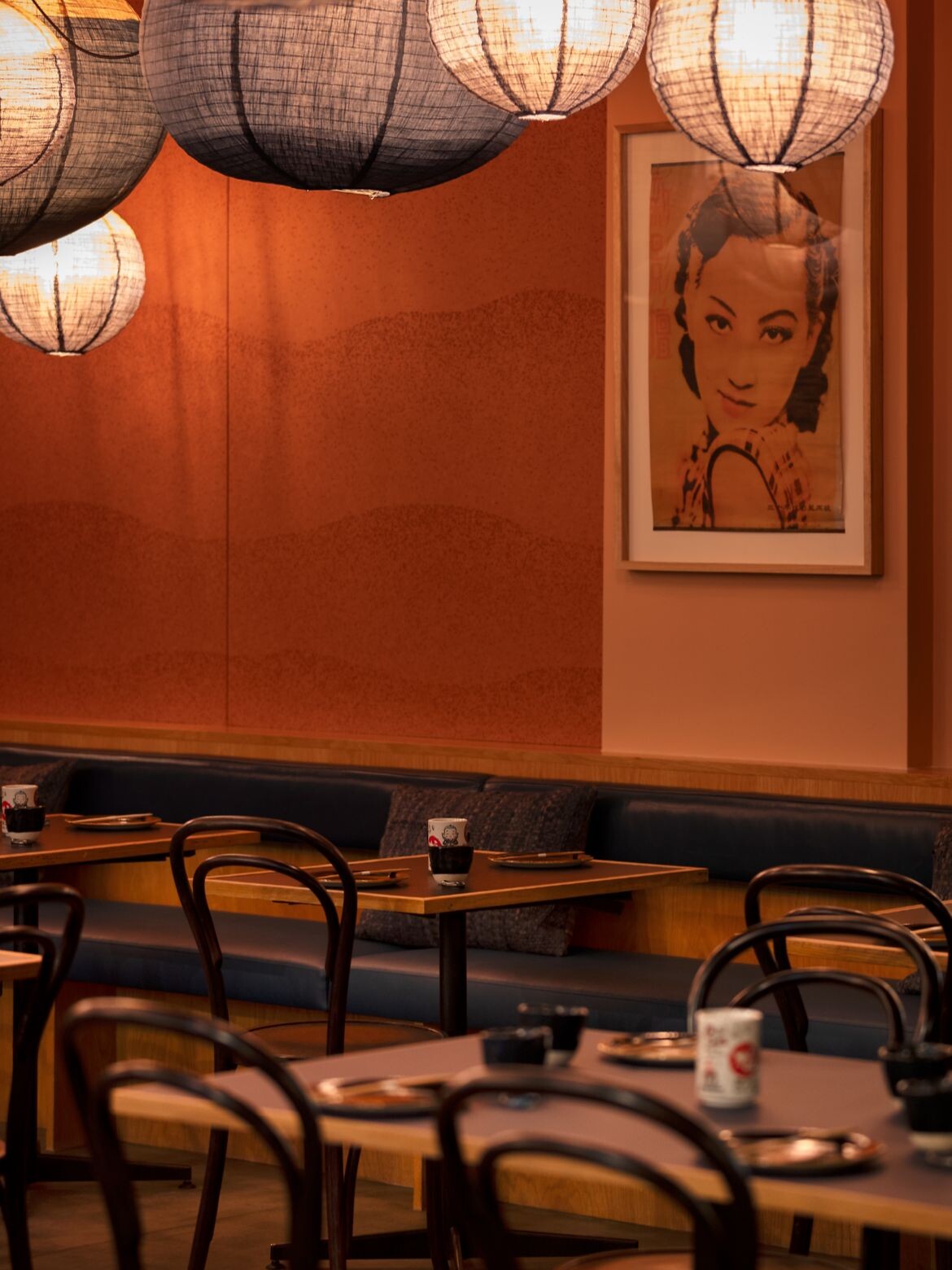
Ross’s thoughtful redesign transforms the restaurant renovation into a celebration of Asian culinary traditions through contemporary Australian design sensibilities. The dimly lit, comfortable interiors create an atmosphere that encourages lingering, supported by acoustic design that allows for intimate conversation, lively music and the energetic soundtrack of kitchen activity.
In a hospitality landscape often driven by trends, Ross and Bisa Hospitality have created something decidedly more permanent – a space where every material choice tells a story and every design decision humbly honours the rituals of both Japanese and Korean cooking and dining traditions.
Kelly Ross Design
kellyross.com.au
Photography
Adam McGrath
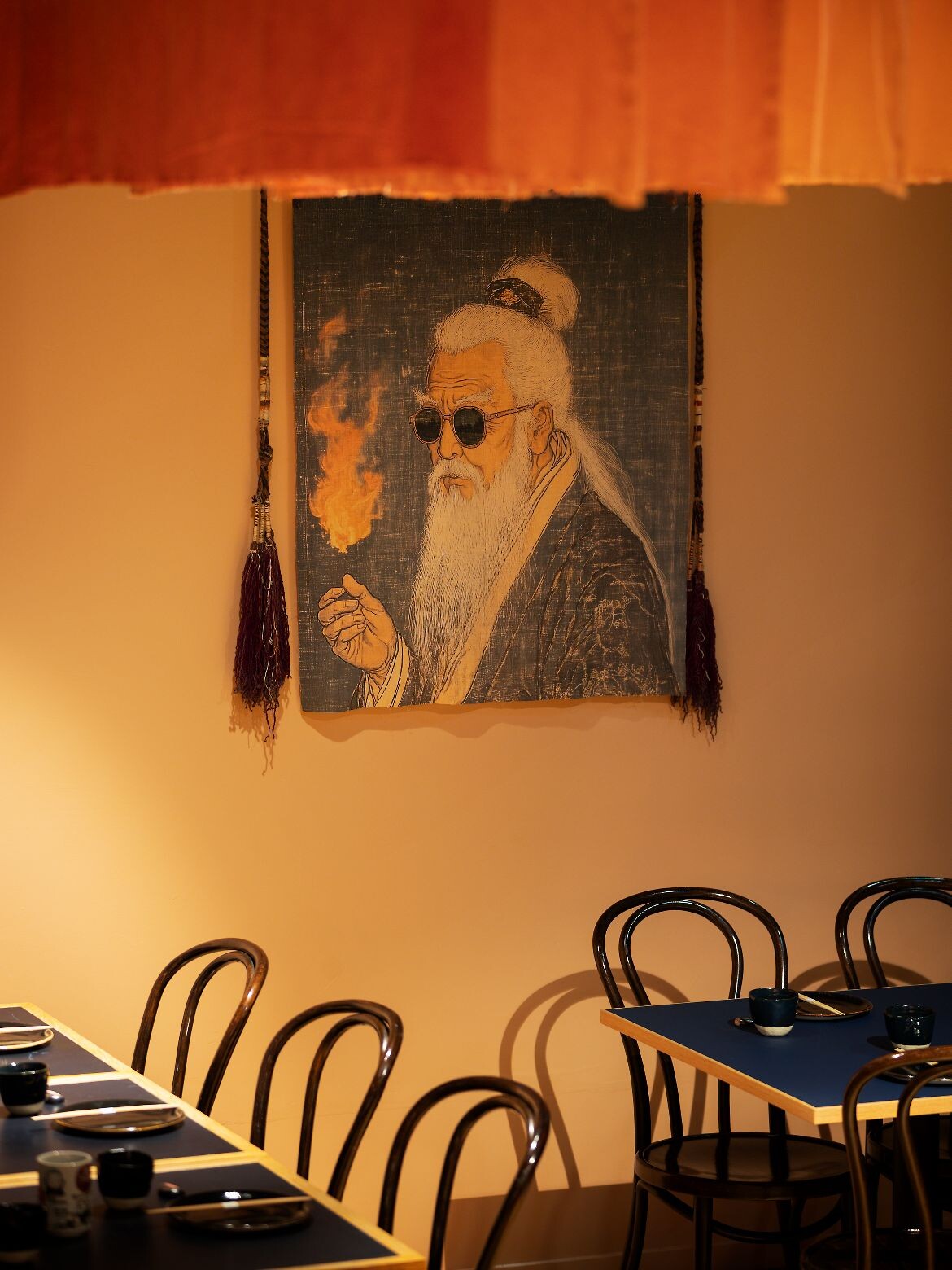
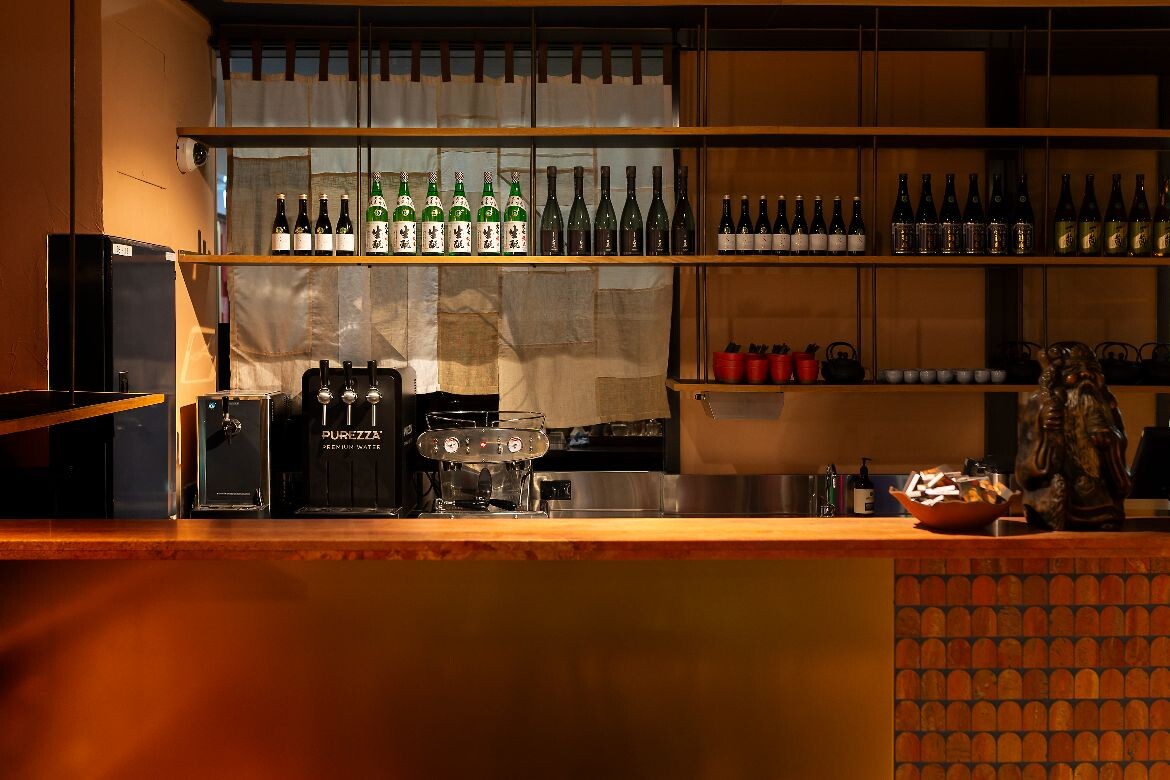
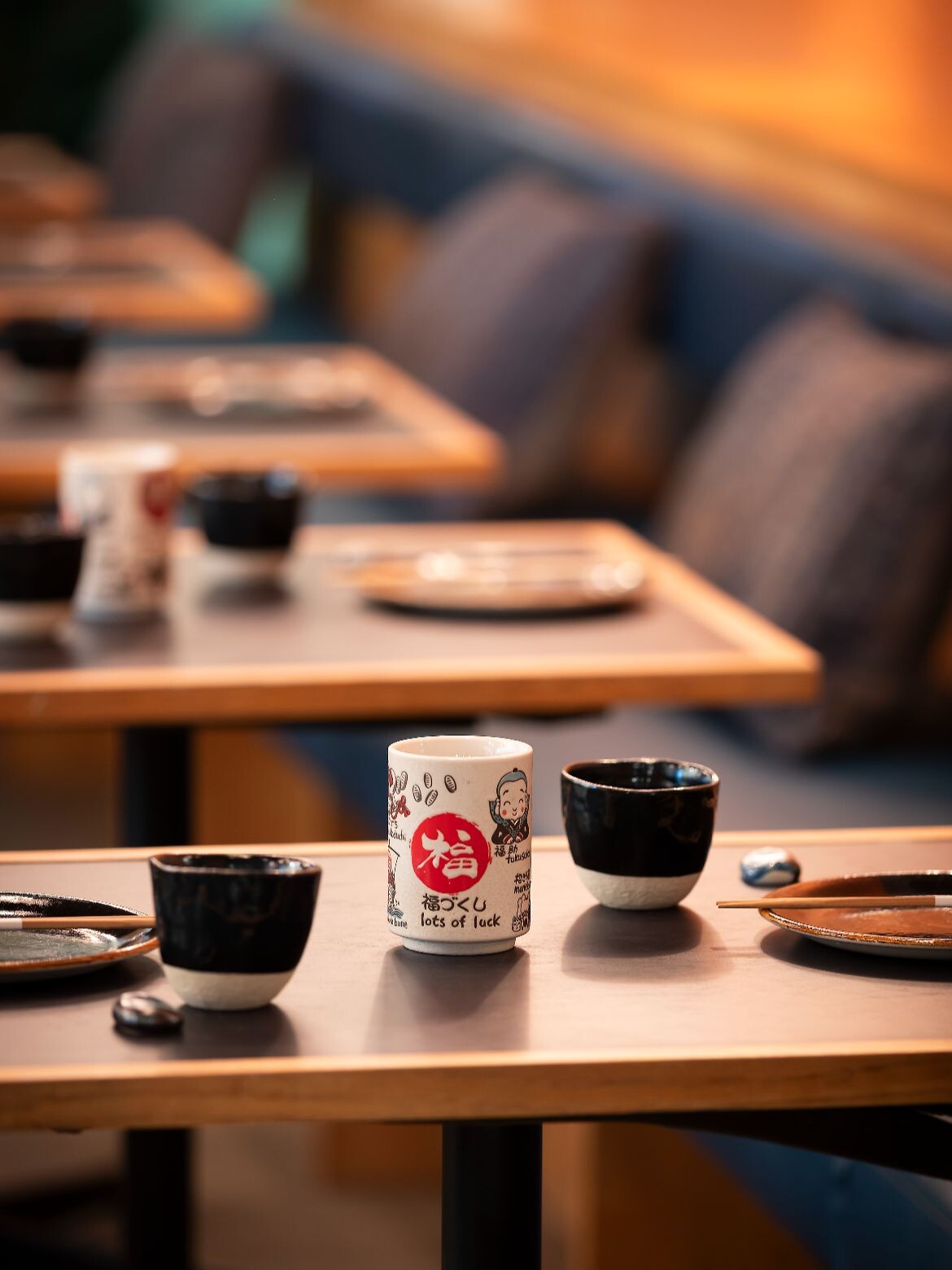
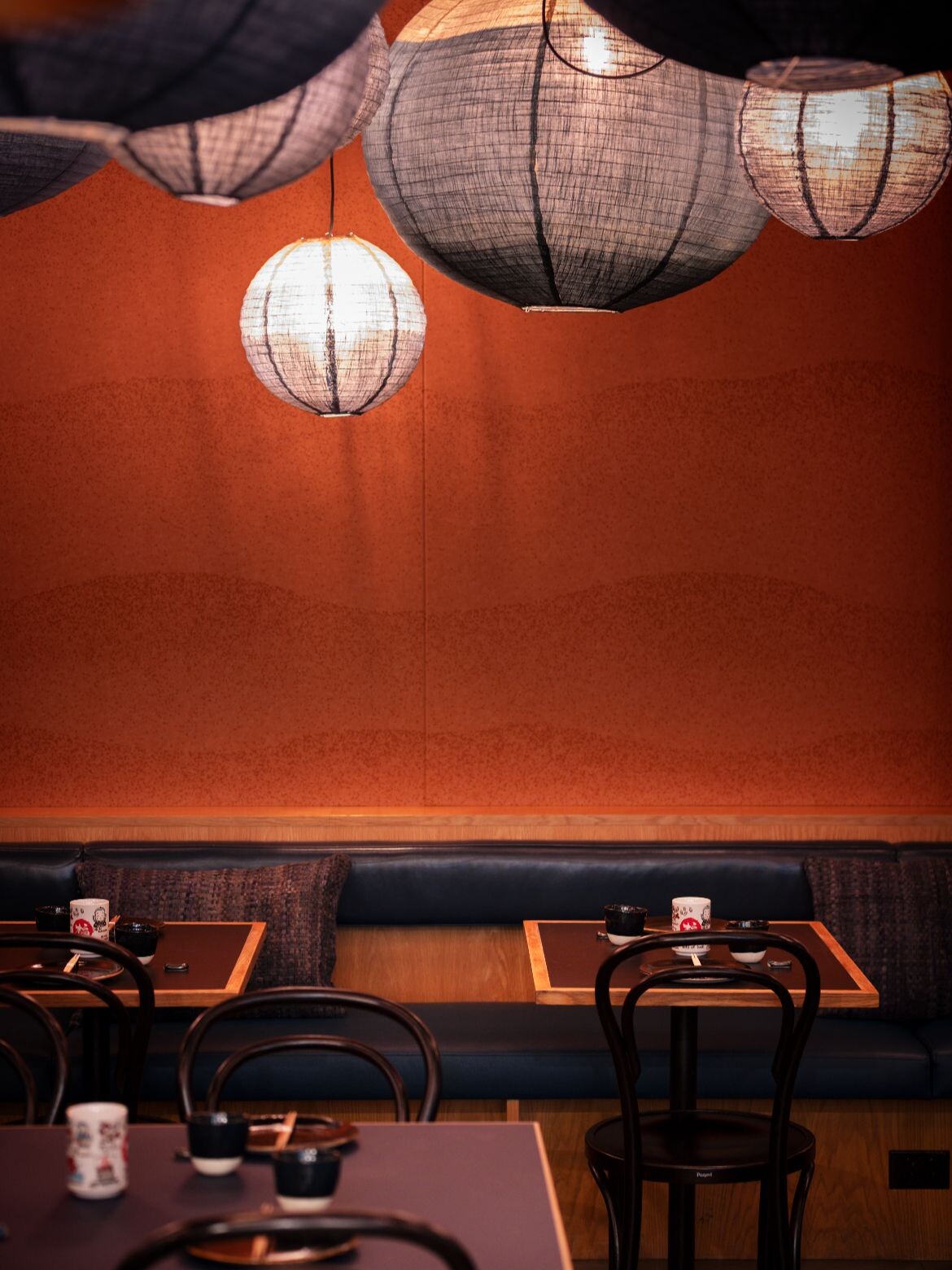
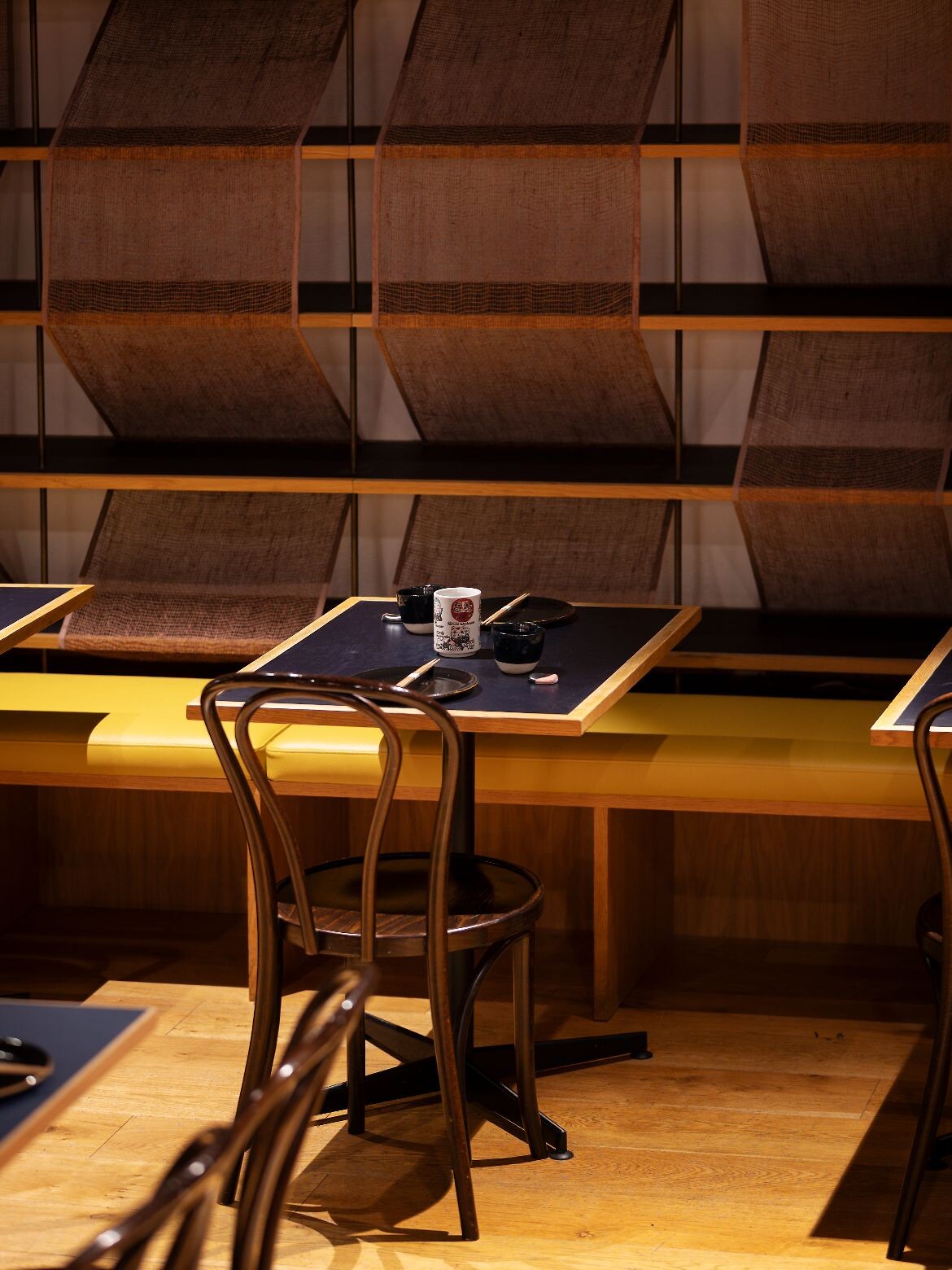
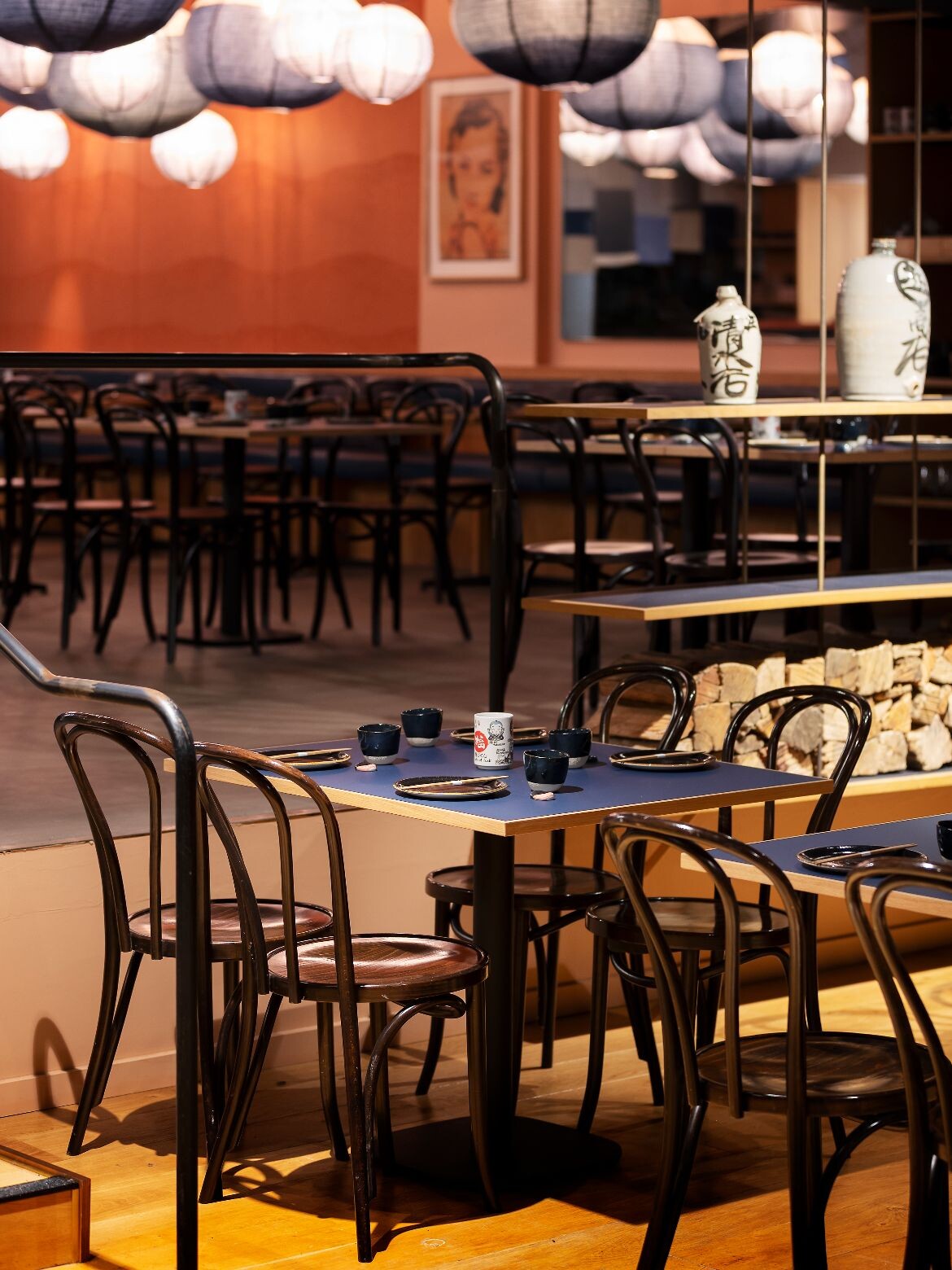
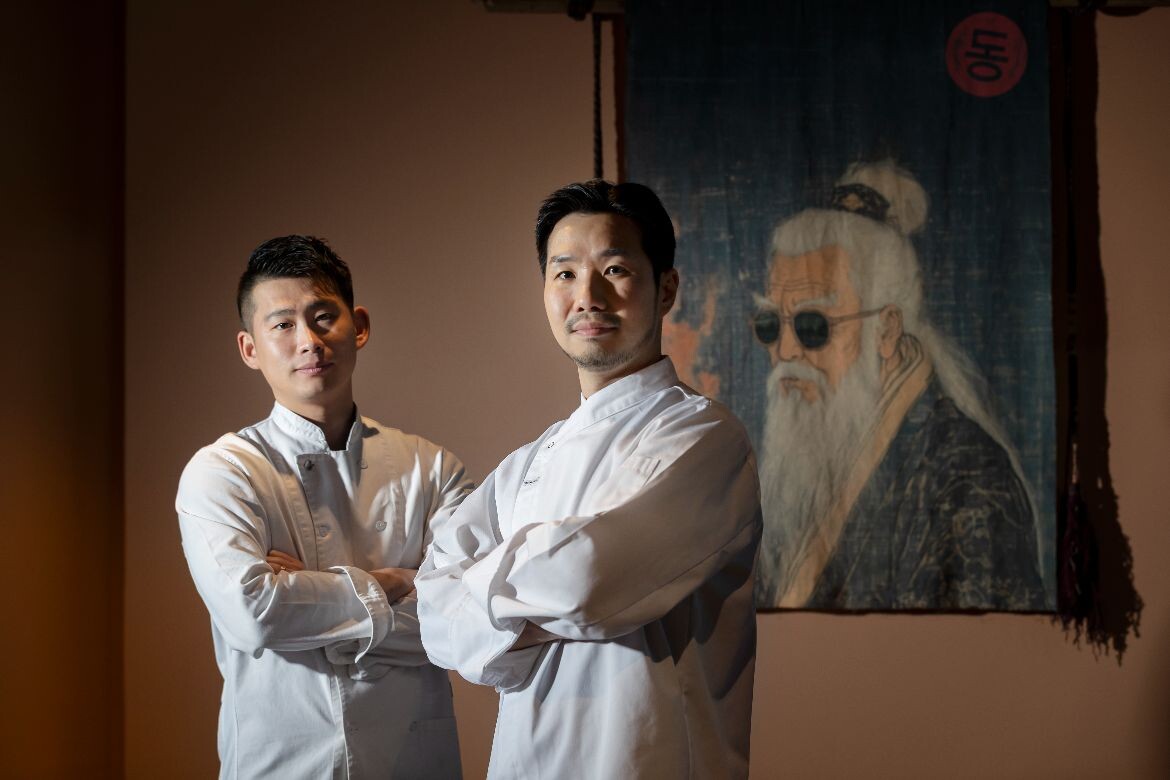
INDESIGN is on instagram
Follow @indesignlive
A searchable and comprehensive guide for specifying leading products and their suppliers
Keep up to date with the latest and greatest from our industry BFF's!
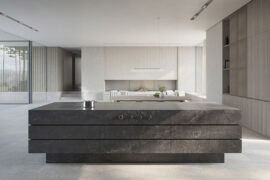
For those who appreciate form as much as function, Gaggenau’s latest induction innovation delivers sculpted precision and effortless flexibility, disappearing seamlessly into the surface when not in use.
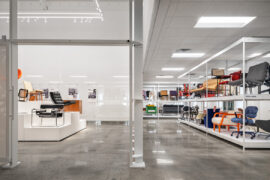
The undeniable thread connecting Herman Miller and Knoll’s design legacies across the decades now finds its profound physical embodiment at MillerKnoll’s new Design Yard Archives.
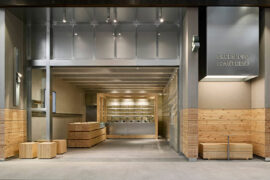
Hecker Guthrie brings a natural, material-led design to Green Cup’s new Chadstone store, pairing pine, steel and glass with a grab-and-go layout inspired by the brand’s fresh, organic ethos.
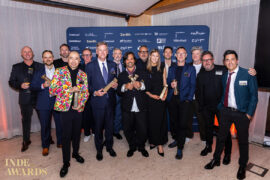
With the opening of the 2026 INDE.Awards program, now is the time to assess your projects, ensure photography is at hand and begin your submissions.
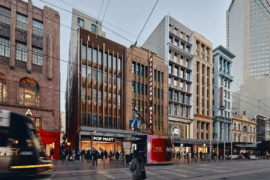
Merging two hotel identities in one landmark development, Hotel Indigo and Holiday Inn Little Collins capture the spirit of Melbourne through Buchan’s narrative-driven design – elevated by GROHE’s signature craftsmanship.
The internet never sleeps! Here's the stuff you might have missed
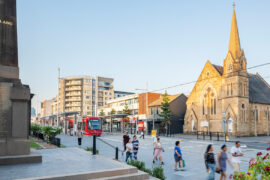
Australia’s first planted light rail corridor sets new benchmark for transport-led urban transformation.

BLP’s new Sydney Children’s Hospital, Randwick building brings together paediatric care, family-centred design and Australia’s first Children’s Comprehensive Cancer Centre in a major addition to the Randwick Health & Innovation Precinct.